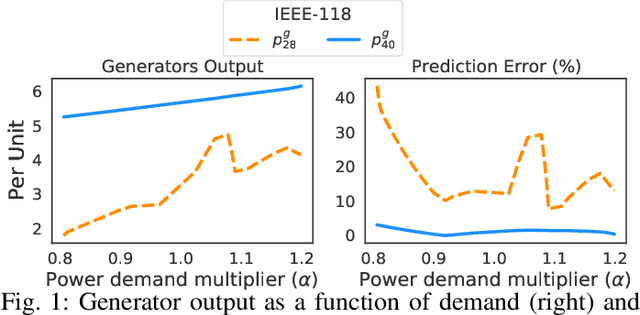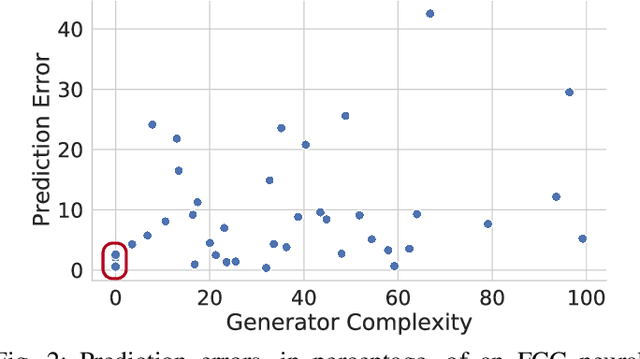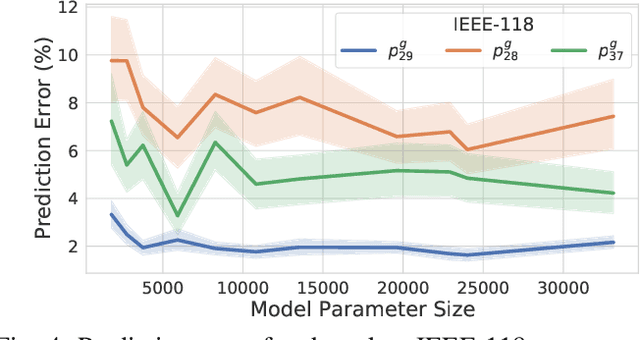Towards Understanding the Unreasonable Effectiveness of Learning AC-OPF Solutions
Paper and Code
Nov 22, 2021



Optimal Power Flow (OPF) is a fundamental problem in power systems. It is computationally challenging and a recent line of research has proposed the use of Deep Neural Networks (DNNs) to find OPF approximations at vastly reduced runtimes when compared to those obtained by classical optimization methods. While these works show encouraging results in terms of accuracy and runtime, little is known on why these models can predict OPF solutions accurately, as well as about their robustness. This paper provides a step forward to address this knowledge gap. The paper connects the volatility of the outputs of the generators to the ability of a learning model to approximate them, it sheds light on the characteristics affecting the DNN models to learn good predictors, and it proposes a new model that exploits the observations made by this paper to produce accurate and robust OPF predictions.
 Add to Chrome
Add to Chrome Add to Firefox
Add to Firefox Add to Edge
Add to Edge